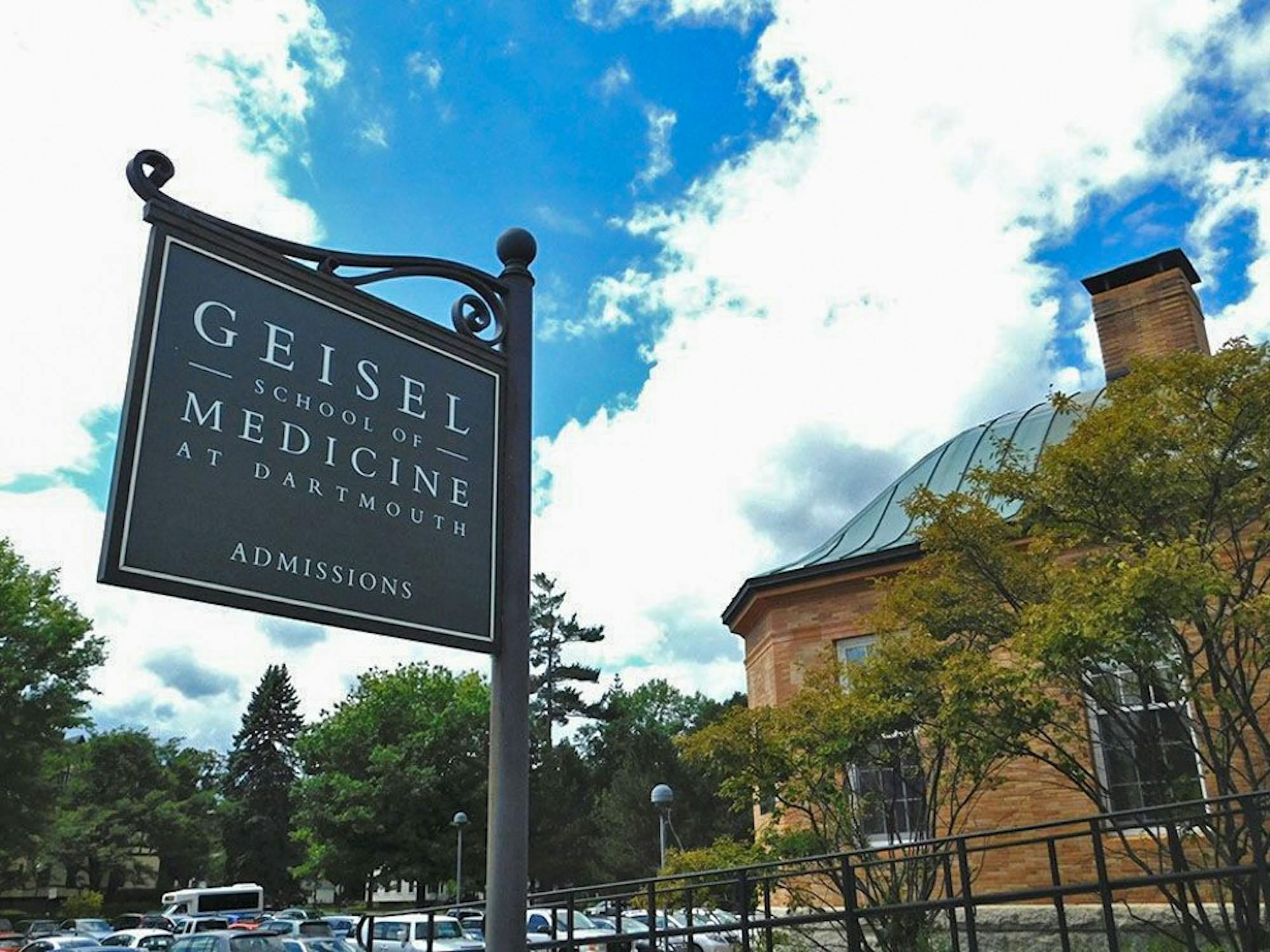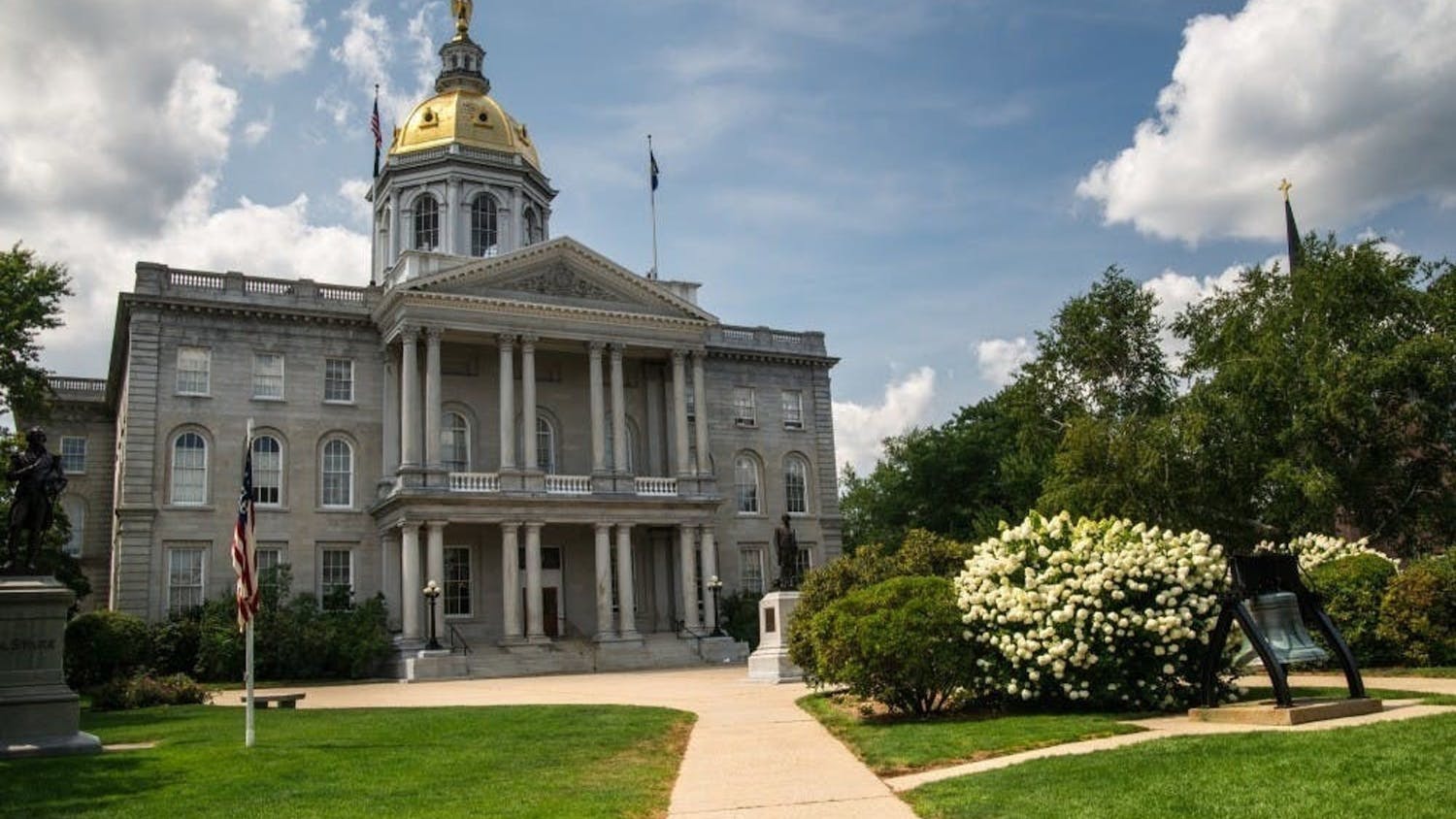In May, nine Geisel School of Medicine students received Albert Schweitzer Fellowships to pursue community service projects in the Upper Valley. As an organization, The Albert Schweitzer Fellowship provides 250 first-year graduate students with $2,000 stipends to foster year-long projects that promote healthier communities and lives in under-resourced areas. As the fellowship recipients reach the halfway points in their projects, the Geisel students have made progress in their overall project goals.
Nasim Azizgolshani Med’20, Sarah Bennett ’16 Med’20, Frederick Burton III Med’20, Melissa Cantave ’16 Med’20, Louisa Chen Med’20, Chad Lewis Med’20, Lucas Mayer Med’20, Jacob Perlson Med’20 and Trenika Williams Med’20 were the Geisel students who received the fellowship in 2017. Mostly working in groups of two, the students are involved with a total of five projects.
Lewis and Mayer are working on a project to increase interest in science, technology, engineering and math fields at Hartford High School in Vermont. Their project includes three aspects: a field trip to a STEM-based industry, working on a laboratory project with robotics and a lecture by an astronaut. As of now, 20 students have signed up to participate in their first event, they said in a joint interview.
Hartford Middle School has also expressed interest to expand the program to younger students within the Hartford school district, Lewis and Mayer said.
Lewis and Mayer are beginning to consider a long-term plan to expand the program beyond the one-year duration of the fellowship.
“It would be cool to have [the project] be just a part of [the middle school] and not part of the Schweitzer fellowship per se,” Mayer said.
Perlson said that his project, Granite State PReP Connect, which raises awareness about HIV and links people to HIV prevention services, has experienced significant progress. Perlson said that he has been able to counsel individuals, linking them to PReP care and HIV/sexually transmitted infection testing, as well as assisting people in the enrollment in financial assistance programs that make PReP more affordable. He has also been successful in advertising the program through fliers and sites like Craigslist in order to bring information to individuals at risk throughout New Hampshire.
Perlson said that the most significant development in his project has been the addition of new team members.
“I thought I would be doing the clinical outreach and community outreach and the research parts mostly by myself, but I have brought in other people and they’ve taken those different aspects of the project in their own direction which has been very exciting to see,” Perlson said.
In order to ensure the sustainability of the project beyond the yearlong fellowship, Perlson has been looking for team members who will take the reins of the project as he moves on to his third year at Geisel.
Chen said that she and Azizgolshani have expanded the focus of their project, which involves the distribution of clean needles, sharps containers and naloxone to intravenous drug users, in response to community demand.
“We’ve realized that our services are more severely needed than we had first initially imagined,” she said.
She explained that she and Azizgolshani are in talks with Valley Regional Hospital in Claremont to set up a second location to distribute Narcan and clean needles. Chen added that before she began her project, she and Azizgolshani reached out to Claremont’s mayor, police chief, fire chief, local hospital, and local drug recovery program to solicit community input on the project.
“The answer was pretty much unilaterally an enthusiastic ‘yes,’” Chen said. “This project is the first of its kind in New Hampshire, so I think most of Claremont was really excited about having us there.”
She said that she and Azizgolshani had the opportunity to collaborate with other Schweitzer Fellows last month, adding that working in small groups with other fellows to offer each other different perspectives was “really helpful. Although the fellowship formally only lasts one year, Chen said she plans to continue work with her project for the foreseeable future.
“[Our project] is something that we really want to be a staple in the community for decades to come because it is incredibly necessary,” she said. “The opioid epidemic isn’t going away anytime soon.”
She added that she and Azizgolshani have already secured sources of long-term funding and are introducing Geisel first-year medical students to the project to ensure its continued success.
“We have been allocating jobs and responsibilities to various first years so that they are a part of the organization and will be able to continue things even if [Azizgolshani] and I are out of commission for a few months due to [medical board exams],” she said.
However, Chen said that she and Azizgolshani plan on staying in the Upper Valley and continuing to guide the organization “in a big picture sense.” She added that she plans on obtaining an MBA during her third and fourth years of medical school, which she said will allow her to increase her involvement with the organization in new ways.
Geisel professor and Schweitzer Fellowship coordinator Timothy Lahey said that this year’s recipients have started work with their projects more rapidly than in past years. He said that while most recipients’ projects last longer than the one-year fellowship period to establish a “long-standing community impact,” short term projects can be equally useful to the community.
“Sometimes there is a specific need that can be answered over the short term, or the project is a beautiful thing in and of itself that has worth, even if it is done over the short term,” he said.
Lahey said that recipients’ project ideas have evolved over time to reflect local and national trends, noting an increase in projects addressing the opioid epidemic, healthy eating in schools, obesity and diabetes.
He added that Geisel and other institutions with Schweitzer recipients provide fellows with donations each year because they “recognize that having students involved in community outreach...is a really valuable part of their learning.” Lahey said that he expects student interest and participation in the fellowship program to increase because students also recognize the value of community outreach.
“If anything, we are getting more and more applications,” he said.
New Hampshire-Vermont Schweitzer Fellows Program director Nancy Gabriel said that she was impressed with Geisel fellows in particular.
“My sense of Geisel is that it really has a strong community service orientation and not just the fellows but the students are really engaged and active,” she said. “I have fellows who are both running projects this year but also helping to continue a project that was started last year.”
Gabriel said that Schweitzer Fellows’ impact on the community is palpable.
“I think part of what we’d love is for more people to know about these projects and the impact they’ve had in the community,” Gabriel said.
Peter Charalambous and Julian Nathan contributed reporting.




